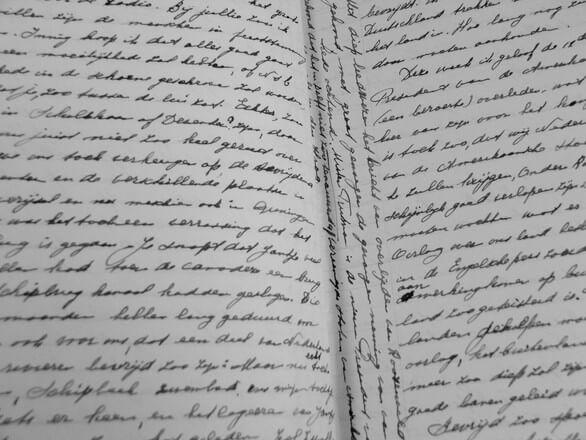Co-authored by Ms. Divya Srinivasan, LexOrbis Associate and Ms. Ragini Gupta, third year student of National Law University, Jodhpur.
Perhaps the most well-known literary work to emerge from World War II is the diary of Anne Frank, a Jewish teenager who went into hiding along with her family to escape the Nazis Hitler’s regime. Anne’s story ended tragically with her death at the tender age of fifteen at a concentration camp in Germany, her entire family wiped out, with the exception of her father, Otto Frank, who had the diary published in 1947.
This eventually became one of the most widely read books of all times, selling over 31 million copies worldwide. Otto Frank entrusted the rights over the diary to the Anne Frank Fonds (‘AFF’) started by him before his death in 1980.
This diary is now the subject of a copyright controversy. In Europe, copyrights expire 70 years after the author’s death and thus the copyright to this work is to expire in 2015, after which it should have become freely available. However, the AFF recently declared that Otto Frank is legally a co-author as he ‘in effect created readable books from Anne’s original writings’[i] and thus the copyright is to subsist until 70 years after his death, i.e. until 2050. This announcement has been criticized by several people who have expressed that allowing the text to enter the public domain would encourage wider readership.[ii] Furthermore, Otto Frank was an editor, who did not creatively contribute to the work and should not be confused with a co-author.
No legal action has been taken yet and this development could very well be mere pressure tactics by the AFF. However, this gives rise to several questions. For example, it is well known that Anne herself had prepared an edited version ‘B’ of her original diary ‘A’ and the book that was eventually published (‘version C’) was prepared by Otto Frank who incorporated aspects of both versions in addition to deleting portions he felt were too personal. In 1986, an edition containing the unedited works was published. In 1986, however, an edition containing the unedited works was published. Does this then mean that while a copyright still subsists in the edited ‘version C’, the versions ‘A’ and ‘B,’ which were not edited by Mr. Frank would enter the public domain in 2015? It seems unlikely that the AFF would intend for an abridged version to be subject to copyright once the unedited versions become freely available.
Though the legal basis of this extension of co-authorship is uncertain, as a general rule, for a work to qualify as a joint work, each contributor must have brought creative expression to the work,[iii] which is clearly not the case here. Furthermore, Article 26 of the Dutch Copyright Act, 1912 when read with the Dutch Civil Code[iv] seems to suggest that rights under co-authorship depend on what the parties have agreed upon.[v] While there was no agreement here, to declare Otto Frank a co-author against his long held position that the work consisted largely of his daughter’s words[vi] does seem to go against the intention of this law.
While critics have disapproved of the alleged profit motive of the copyright holders, the AFF has argued that motive behind holding on to the copyright is to prevent inappropriate commercial exploitation. For example, it has had to veto proposals to have diary excerpts appear on jeans and coffee mugs and even reject a pitch for a horror movie,[vii] which is arguably distasteful and insensitive when the work’s seriousness is considered. If this is indeed the case, a possible solution to the problem would be a suitable Creative Commons License that allows open access but controls in what manner the reproduction of the work can take place. Such licenses are enforceable in Dutch courts, as is evident from a 2006 case.[viii] This would enable the AFF to prevent the diary from being reproduced in an inappropriate manner while ensuring that Anne’s legacy is open for all who wish to know about it.
[i] Anne Frank Publishers locked in Copyright Battle, Senay Boztas, The Telegraph UK, Nov. 17, 2015, Available at: http://www.telegraph.co.uk/news/worldnews/europe/netherlands/12001720/Anne-Frank-publishers-locked-in-copyright-battle.html.
[ii] Thanks to Copyright Bullshit, Anne Frank’s Diary now has a co-author, Rachel Cote, Jezebel, Nov. 15, 2015, Available at: http://jezebel.com/thanks-to-copyright-bullshit-anne-franks-diary-now-has-1742717642.
[iii] Goldstein & Hugenholtz, International Copyright: Principles, Law and Practice, (2010) p.249.
[iv] Articles 3: 170(2).
[v] The Impact of Co-Ownership of Intellectual Property Rights on their Exploitation, Report Q194, De Meerakker & Heezius et al, AIPPI, Netherlands, 2007, Available at: http://aippi.org/wp-content/uploads/committees/194/GR194netherlands.pdf.
[vi] Anne Frank’s Diary now has a co-author to extend Copyright, Justin Worland, Time Inc. Network, Nov. 15, 2015, Available at: http://time.com/4113855/anne-frank-diary-co-author/.
[vii] Anne Frank’s Diary in copyright law paradox 70 years after her death, Tu Tanh Ha , The Globe and Mail, Nov. 12, 2015, Available at: http://www.theglobeandmail.com/news/world/anne-franks-diary-in-a-copyright-law-paradox-70-years-after-her-death/article27244584/.
[viii] Creative Commons Licenses enforced in Dutch Court, Mia Garlick, Creative Commons, Mar. 16, 2006, http://creativecommons.org/weblog/entry/5823.




